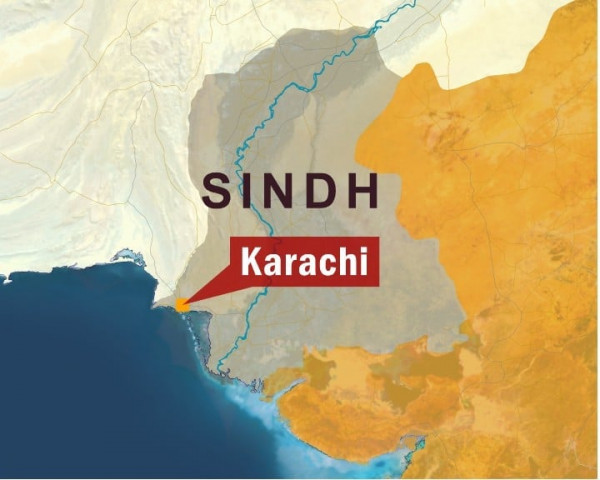Sepa says Khayaban-e-Saadi should be made residential again
Decision to commercialise Khayaban-e-Saadi should be revised, says Sindh Environmental Protection Agency.

Mughal said Sepa was not even taken board nor was any environmental assessment conducted for the road when it was commercialised in 2005. The decision was announced after presentations by the environmental consultant for Noman Castello, Nadeem Arif Thursday. The project was debated at a public hearing on the construction of the commercial building about 100 metres from the The Karachi Grammar School (KGS) by parents and residents of the neighbourhood.
The meeting which began at 10 am at Regent Plaza was conducted by DG Sepa, who at least on four occasions had to ask the parents and residents to “maintain decorum” and allow Arif to complete his presentation. Finally, KGS Principal Dr Graham C Platts had to request the attendees to refrain from snide and personal comments.
EIA
With regard to the three - pre-construction, construction and post-construction - phases of the office building, Arif, who accepted that the commercialisation of KeS was incorrect, said the project itself did not provide any environmental risk. However, he admitted that his job did not currently include the environmental impact assessment (EIA) at a macro level - i.e. the entire road.
Arif claimed that during the first phase no ambient air quality would be polluted, no flora or fauna would be disturbed nor was there any threat to the safety of the neighbourhood.
In response, a parent, also an environmental consultant, Ali Khan, pointed out that if they were discussing flora and fauna, Arif should have then also incorporated the mangroves at Boat Basin. In his opinion an independent EIA was needed as the one presented to Sepa was impartial.
On airborne particulate matter (dust) during the construction, Arif said that site and stock piles should be “wetted” (water should be sprinkled) and that the construction workers should wear masks. A citizen who identified herself as Ms Thompson, responded that it was all and well that the workers would be given masks but what about the residents? “Should they just wear masks as well?” she retorted.
Lead poisoning
Parent Zohra Aziz Kabani, a corporate communications officer for Pakistan Petroleum, brought up lead poisoning. Quoting a study, she said a major concern of air being polluted by lead from cars had a direct link on children’s IQ. According to her study, a small amount of lead poisoning could affect their IQs by as much as 10 per cent. The consultant company’s environmental expert Arshad Baig countered this, saying that other particulate matters in Karachi posed a greater threat.
Security
Parent Laila Bukhari inquired about whether the consultants had taken the police’s views on the construction, who she claims have said they cannot handle the added need for security. Arif responded that the building will have 24-hour security surveillance, however security and safety for the nation, at large, was the job of the law-enforcement agencies - a reply which was received by scoffs from the stakeholders.
Traffic
On traffic congestion and noise, Arif proposed taking KGS and other stakeholders on board to form a combined contingency plan. The peak traffic hours for the office were between 7 am to 9 am (which coincides with morning school hours) and 5 pm to 7 pm with parking prohibited on the roads at all times. In compliance with legal standards the building has allocated space for 104 cars and 332 motorcycles. But this will barely suffice, said Shehri member Roland deSouza. According to his estimates, at least 300 cars a day would visit the building and with just 104 spots the rest would be left to find place on the road. From the consultant’s team Ashar H Lodi said a traffic plan was still being assessed. When it was suggested KGS use buses, a parent said they posed a greater risk of being hijacked.
Water, electricity
The consultant and builder’s director Mujtaba Passwala said water and electricity would not be a problem since they had gained “assurances” from the authorities that they were capable of handling the demand created by the project. For construction however, Arif said a supply of 12,000 gallons a day and 1,060kW would be met with tankers and generators. The residents were sceptical. The construction will take three years. Arif also proposed a septic tank for waste storage till it could be properly disposed off. This was also met with disbelief.
KGS nuisance
Sepa would suggest reversing the road’s status to residential. Requesting Sepa not to come under the pressure of the influential KGS parents, resident Ali Jafri said KGS was no less of a cause for traffic and noise than anyone else and perhaps they are the ones who should move.
Now, a panel of eight to 10 members will deliberate on the matter.
Published in The Express Tribune ,October 15th, 2010.



















COMMENTS
Comments are moderated and generally will be posted if they are on-topic and not abusive.
For more information, please see our Comments FAQ